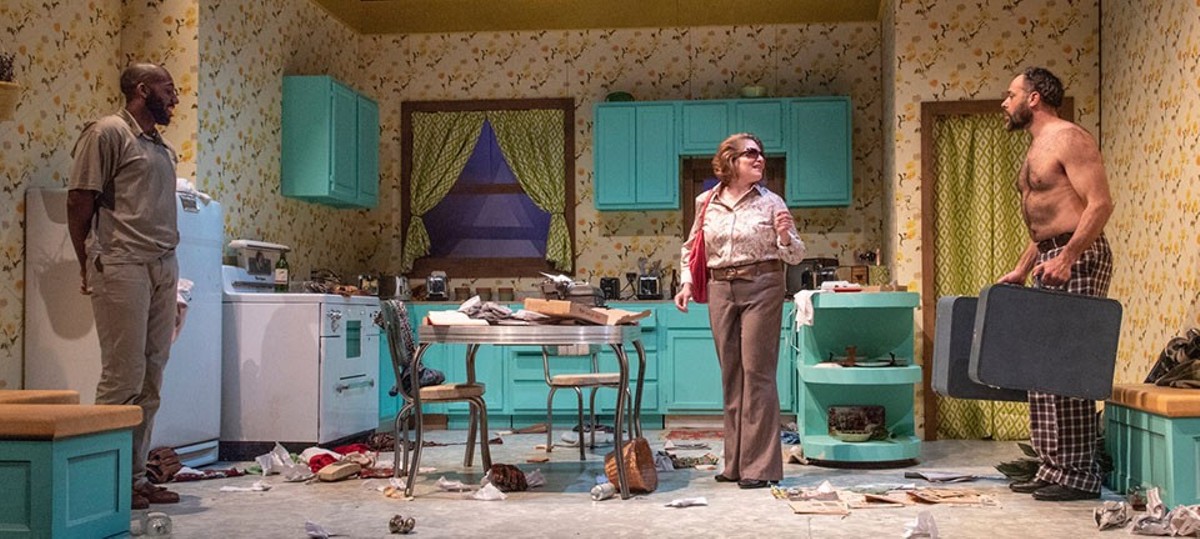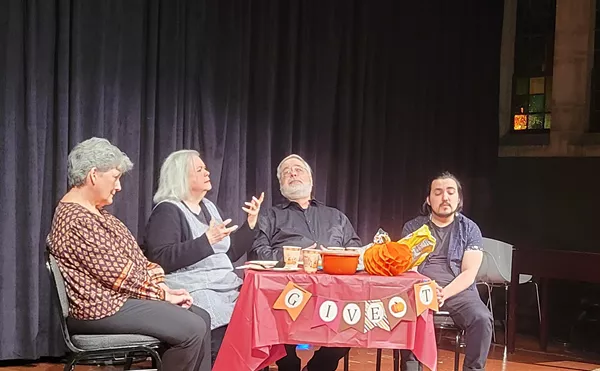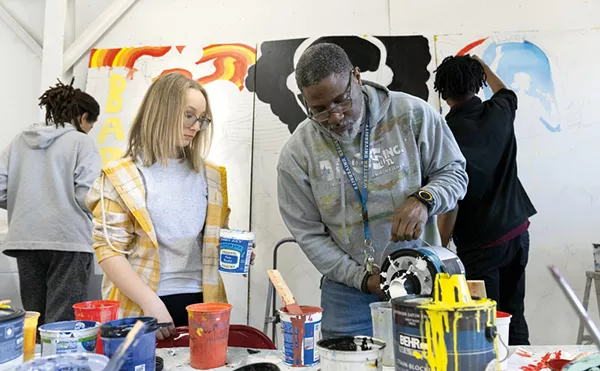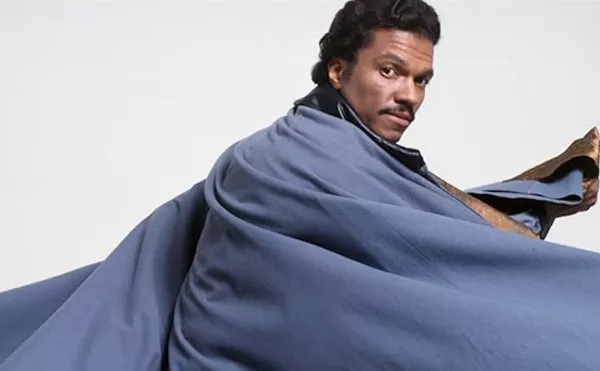Somewhere out in the wilds of Southern California Austin works by candlelight late into the night, accompanied only by the music of the crickets and the haunting song of the coyotes. Oh, and also a steady stream of questions from his brother, Lee. They're both in their mother's suburban kitchen, and Austin is working diligently on his screenplay for producer Saul Kimmer, while Lee fires off impatient questions about nothing in particular. The Old West of legend and silver screen is long gone; it's been paved over and they've put up suburbia in its place.
Sam Shepard's drama True West is about the restlessness that drives some men to the western edge of America, and what is lost when there are no more frontiers. It's about misfits, brothers with little in common and the violence that erupts when people are jammed together in a tight space with no exit. In St. Louis Actors' Studio's current production of the play, directed by William Whitaker, True West is as dangerously alive — and unpredictable — as wildfire, an all-consuming wave of destruction that harrows the stage, the audience and perhaps the actors. You lose yourself watching Lee and Austin dance around one another in the flames, wondering if either can leap to safety before it's too late.
William Humphrey plays Austin, the responsible Ivy League graduate who's house-sitting for his mother while she vacations in Alaska. Seated at the kitchen table in front of his typewriter, he adds notes to his script. It's a romantic period piece, he says, and it's as good as sold even though it's not finished.
With Lee in the house, it may never get finished. Isaiah Di Lorenzo springs around the exceptionally retro kitchen set (designed with great detail by Patrick Huber) like a trapped animal, turning over objects in his hands and complaining about the crickets, the boredom of the neighborhood and the excessively warm night. Lee's a petty thief who's been holed up in the desert, surviving on his own. He changes conversational gears whenever Austin expresses any real interest in what he's saying, which suggests he's making it up as he goes along.
Maybe he is. Maybe Lee is as much a storyteller as his more polished brother. When producer Saul Kimmer (William Roth) shows up to check on Austin, Lee talks his way into a golf date with Saul, and then sells his own (unwritten) script to him, or so he tells an incredulous Austin. Lee's story is about the "real West," the West Lee has lived in and knows, not that crap Austin is working on. This sale (or is it claim jumping?) precipitates a range war between the two brothers, with the kitchen as their battlefield.
In war the brothers begin to resemble one another. Di Lorenzo grows more wild-eyed as Lee tries to force Austin to do his bidding and takes out his fury on Austin's disobedient typewriter. Humphrey's Austin slips the chains of civilization and retreats to the bottle and a rambling string of questions about burglary, the desert and whether Lee would teach him how to live out there. In their brief moments of truce, they talk about their absent father, and how nothing in the neighborhood looks like they remember it.
Southern California may have been transformed, and Mom's kitchen definitely has been, but neither Lee nor Austin can become anything other than what they are. In the calamitous moments at the end of the play, they're still brothers and still at war over something they can't name. Is it sibling rivalry, jealousy, hatred? An outsider can't really pin down the furious dislike that festers between brothers who are both too different and too much alike. Cain gave it his best shot, but neither Lee nor Austin know that kind of success.






